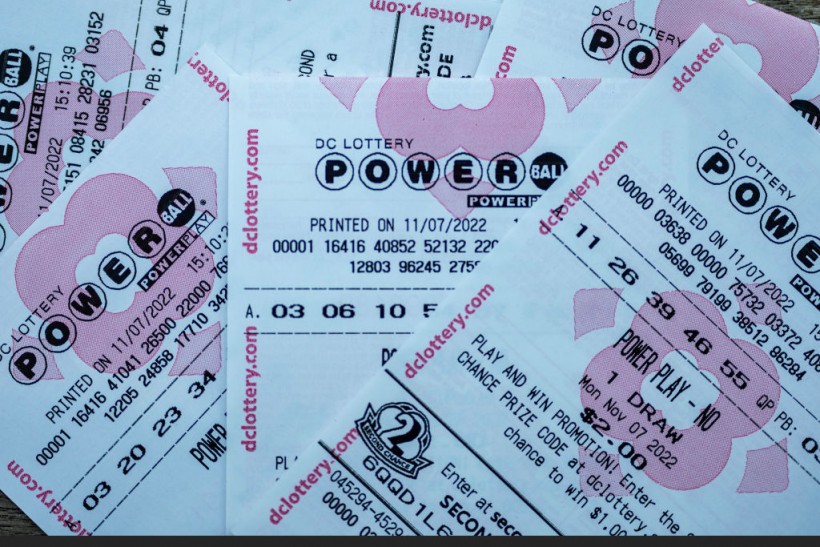Powerball Glitch: The Real Reason Why the Record-Breaking $2.04 Billion Jackpot Drawing Delayed

A Powerball glitch made anxious lottery players waited almost 10 hours for Monday night's record-breaking $2.04 billion jackpot drawing, which finally was drawn Tuesday morning.
Many talked about the long delay that happened. On Thursday, lottery officials revealed that a glitch or technical issue with the verification process in Minnesota caused the delay.
A statement on the Minnesota Lottery website said, "after unprecedented lottery interest, Minnesota's sales verification system caused a processing delay."
The statement noted that the "delay was necessary to confirm the Powerball drawing could be conducted securely and accurately." It added that "at no time was the integrity of the process compromised."
According to the New York Post, the Minnesota Lottery system uses a two-step verification process wherein an initial vendor prints and records ticket transactions, and a second vendor checks their work for accuracy.
However, the systems could not communicate properly on Monday night, which made it impossible to "balance" the data and confirm that each ticket had a fair chance of winning. Reports said officials had to reprocess the entire day's sales since data in its two-tier verification system did not match up.
Lottery officials said similar Powerball glitch are usually solved "within an hour." However, Monday's delay took almost 10 hours to fix it.
Winner of $2.04 Billion Powerball Jackpot Still Unknown
Tuesday's draw of the Powerball lottery had one winner in Southern California taking home the record-setting $2.04 billion jackpot. The New York Post reported that the identity of the winning ticketholder has not yet been shared, but it will eventually be made public.
According to FOX 11, no winner has been confirmed yet since winners must still undergo a rigorous vetting process by their state lottery. It could reportedly take weeks or even a few months to officially declare a winner.
However, the winner's name cannot be anonymous in California. The winner's name is considered a matter of public record under California law.
According to the California Lottery Winner's Handbook, a winner's full name and the name and location of the retailer that sold the ticket are all subject to disclosure. It also said the amount of the winnings, which includes the gross and net installment payments, must also be disclosed.
Another reason why California law discloses the winner's name to the public is for the public to know that these lotteries, including the Powerball, are honestly run. Lawmakers also wanted the public to know that the prize was paid out to a real person and was not getting scammed.
Because of this California law, the store where the Powerball winning ticket was purchased was revealed. Reports said the lucky ticket was bought at Joe's Service Center in Altadena.
Public disclosure laws differ from state to state. States that grant anonymity includes Arizona, Florida, Delaware, Georgia, Kansas, Illinois, Maryland, Minnesota, New Jersey, Virginia, Texas, and Wyoming.
Powerball and 'Systemic Racism'
Some experts told CNN that lotteries like the Powerball and Mega Millions are preying on poor communities, and a form of "systemic racism."
Eventhough the chances of winning are extremely low, state lotteries reportedly continue to market and sell tickets to low-income communities at higher rates, leading Americans to believe that this is a fast way to get rich.
Researchers told CNN that these communities are disproportionately made up of Black and brown people. According to the report, "lotteries are regressive," which means "lower-income groups spend more of their budgets on lottery games than higher-income groups."
Les Bernal, national director for Stop Predatory Gambling, told CNN that lotteries are a form of "systemic racism" and "consumer financial fraud."
Bernal said poor people are being scammed into believing they will someday get rich from winning the lottery. Bernal noted that many lottery players continuously pay for lottery tickets hoping to gain wealth but get nothing in return.
"Commercialized gambling like state lotteries, like the Powerball drawing, they represent a financial exchange that is mathematically stacked against you," Bernal told the outlet.
This article is owned by Latin Post.
Written by: Rick Martin
WATCH: Powerball Winner in California Holds Ticket Worth More Than $2 Billion - From ABC News
Subscribe to Latin Post!
Sign up for our free newsletter for the Latest coverage!














